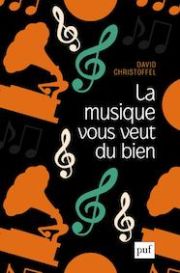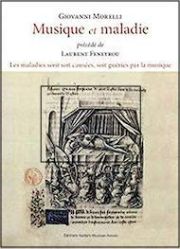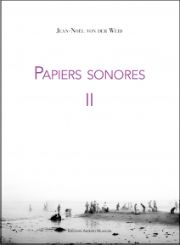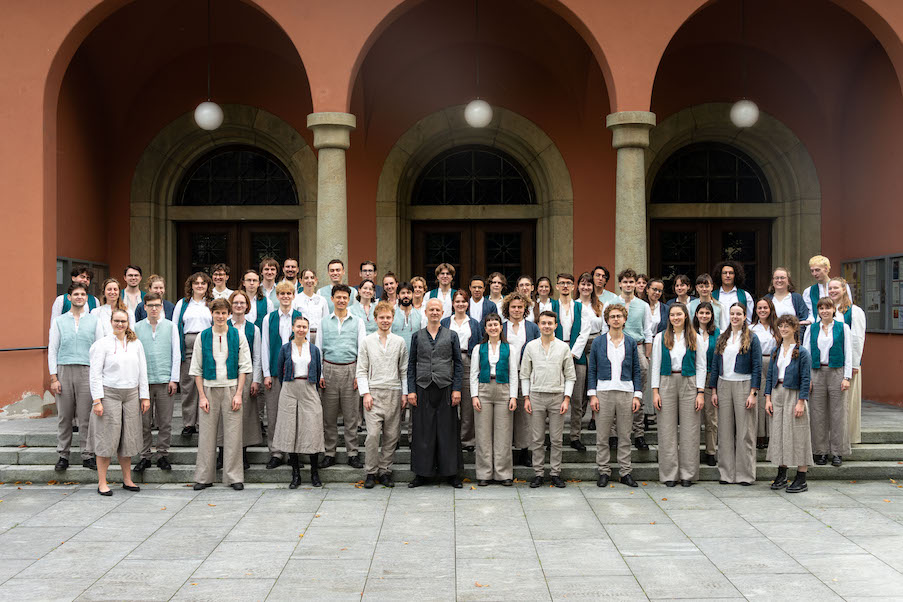Does music heal?
Two recently published books deal with the links between music and health, while a third takes us to the intersection between music and speech.

How can we distinguish between what emanates from charlatanism or legend and what is based on facts established by positive science? How can we avoid generalizations, mercantile recuperations and exaggerations, without lapsing into blind skepticism? David Christoffel's well-documented recent book presents a vast panorama, from Antiquity to the present day, of the real or supposed benefits of the art of Euterpe. The ancient intuition of a musical harmony enabling humans to re-tune their inner selves or manage ailments quickly degenerated into a multitude of sometimes puerile or premagical beliefs. It's only recently that more scientific approaches have emerged, particularly in the neurosciences and behavioral sciences, bringing a more realistic and measured vision. However, the methodology of these experiments must be sufficiently strict and well-targeted. It is also difficult to discern what is acquired or innate, as reactions can vary not only from one individual to another, but also from one moment to the next. Furthermore, we must be careful not to confuse cause and effect, as music can be used as an adjuvant in the healing process, without necessarily being able to cure directly on its own. The many therapeutic applications range from the treatment of dyslexia to the alleviation of autistic disorders or neurodegenerative diseases, while the pedagogical potential of a musical activity includes the fixation of knowledge or the ability to apprehend emotional content. In pocket format, this book provides a wealth of diversified information on the subject, with many instructive and amusing anecdotes, from the most extravagant theories to the most serious research.
David Christoffel : La musique vous veut du bien, 250 p., € 19.00, Editions Puf, Paris 2018, ISBN 978-2-13-078974-1
Music and illness
Another work on the same subject, but deliberately more erudite and specialized, the opuscule by physician, musicologist and polymath Giovanni Morelli was originally published in the Italian edition of the Encyclopédie de la musique edited by Jean-Jacques Nattiez - the French edition having dispensed with translating this sometimes convoluted rhetoric. Laurent Feneyrou has not only tried to remain as close as possible to the original, including some typically Italian expressions, but has also added an abundant critical apparatus as well as the translation of an article by Morelli devoted to the same theme. But above all, he has written an introduction, almost an essay, longer than the text presented, in which he also looks at the music-related content of several other books by the Italian scholar. In Music and illnessThe book includes a reflection on how medicine has viewed music, a brief analysis of the role of the Enlightenment in both fields, eight pathographies of composers (Bach, Handel, Mozart, Beethoven, Schubert, Mendelssohn, Chopin and Schumann), a transition discussing the changing status of the sick at the beginning of the 20th century, and finally a hypothesis on musical creation in the age of the HIV virus. From the status of musician-healer to that of suffering creator whose music is a pathological reflection, the collective imagination has been inflamed in various ways. Illness and death being commonplace, over-emphasizing the pathologies of celebrities runs the risk of making us forget that they are just sick people like any others, with only voyeurism making their clinical cases literally more spectacular.
- Giovanni Morelli, Laurent Feneyrou: Musique et maladie, 208 p., € 26.00, Éditions Aedam Musicae, Château-Gontier 2017, ISBN 978-2-919046-45-4
Papiers sonores II
Three years ago, musicologist and writer Jean-Noël von der Weid, author of the acclaimed 20th century musicwrote a collection of texts intended to be read in counterpoint to specific musical pieces (read the presentation of the first volume). Recently published, the second volume repeats these experiments, with 40 new composers, all duly presented in notes, usually one to two pages long, which focus more on the spirit of the creators and the essence of their works than on simple biographies. The musicographer thus pays homage to personalities as diverse as, to name but a few, Dowland or Nancarrow, Schmelzer or Rădulescu, Jacquet de La Guerre or Oustvolskaya, Chopin or Vivier, Bizet or Ohana, Alkan or Feldman. As for the texts accompanying the auditions, they are divided between those from the author's pen, who likes to juggle with words, references and reminiscences, and other writings - often excerpts from composers' letters, but also quotations, a dithyrambic poem or a delicately mysterious passage from the Poliphilo's Dream of Colonna.
Jean-Noël von der Weid: Papiers sonores II, 224 p., € 27.00, Éditions Aedam Musicae, Château-Gontier 2018, ISBN 978-2-919046-59-1








